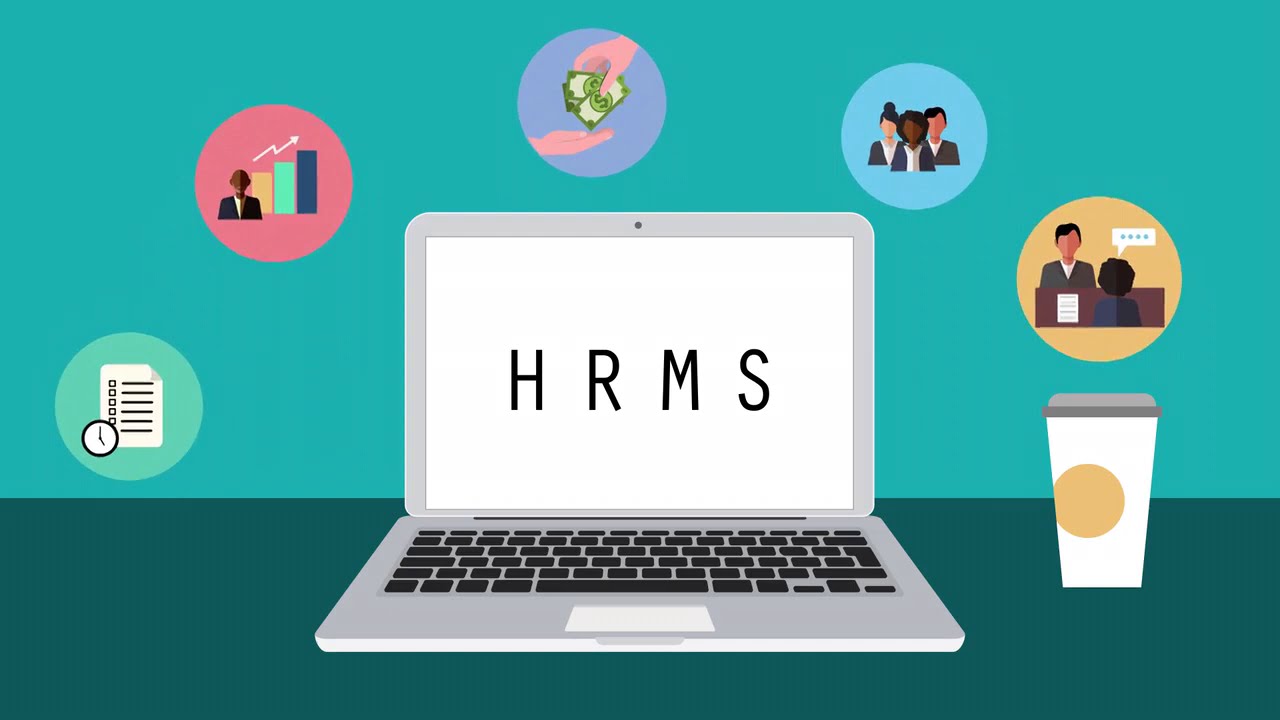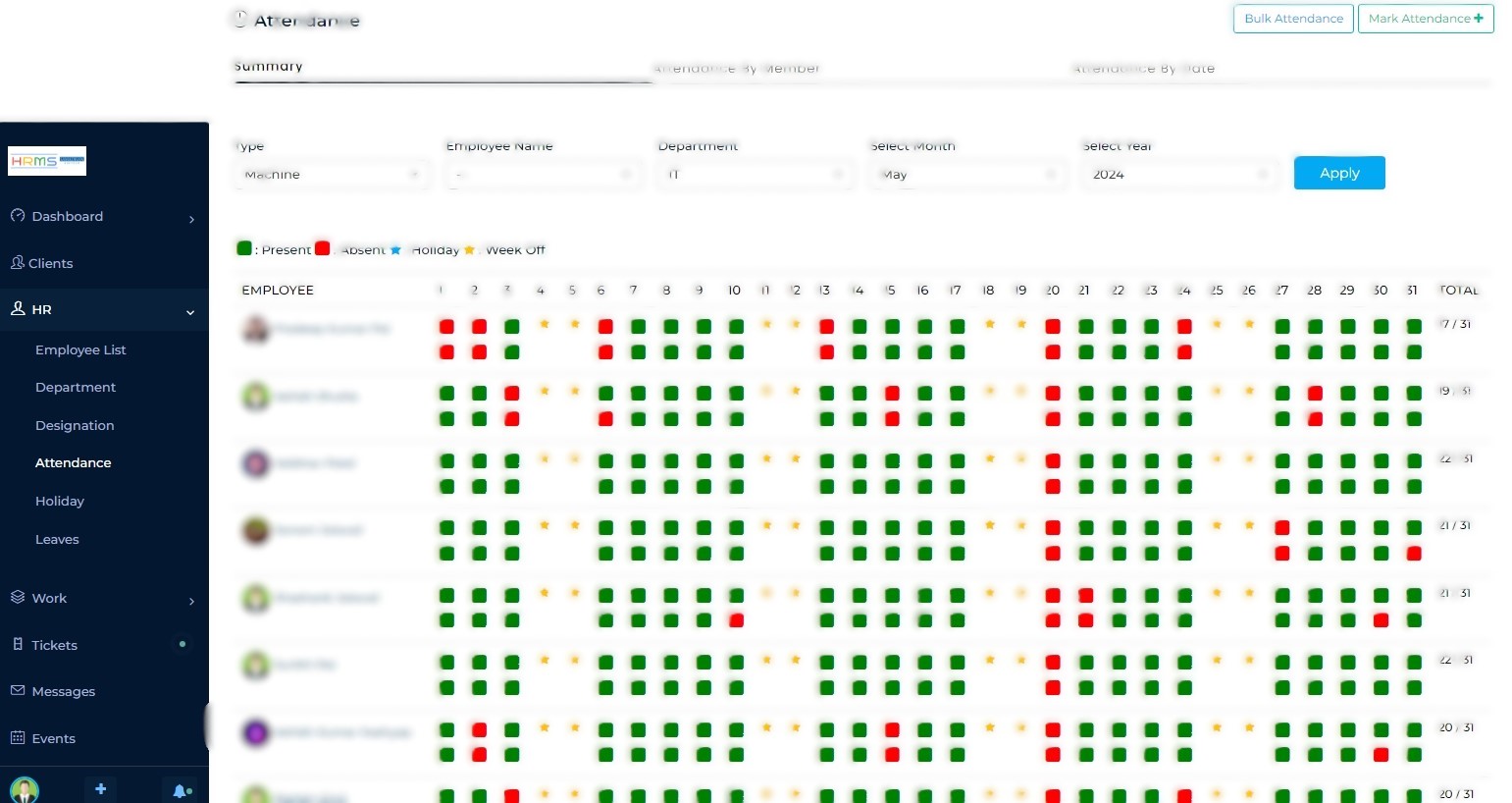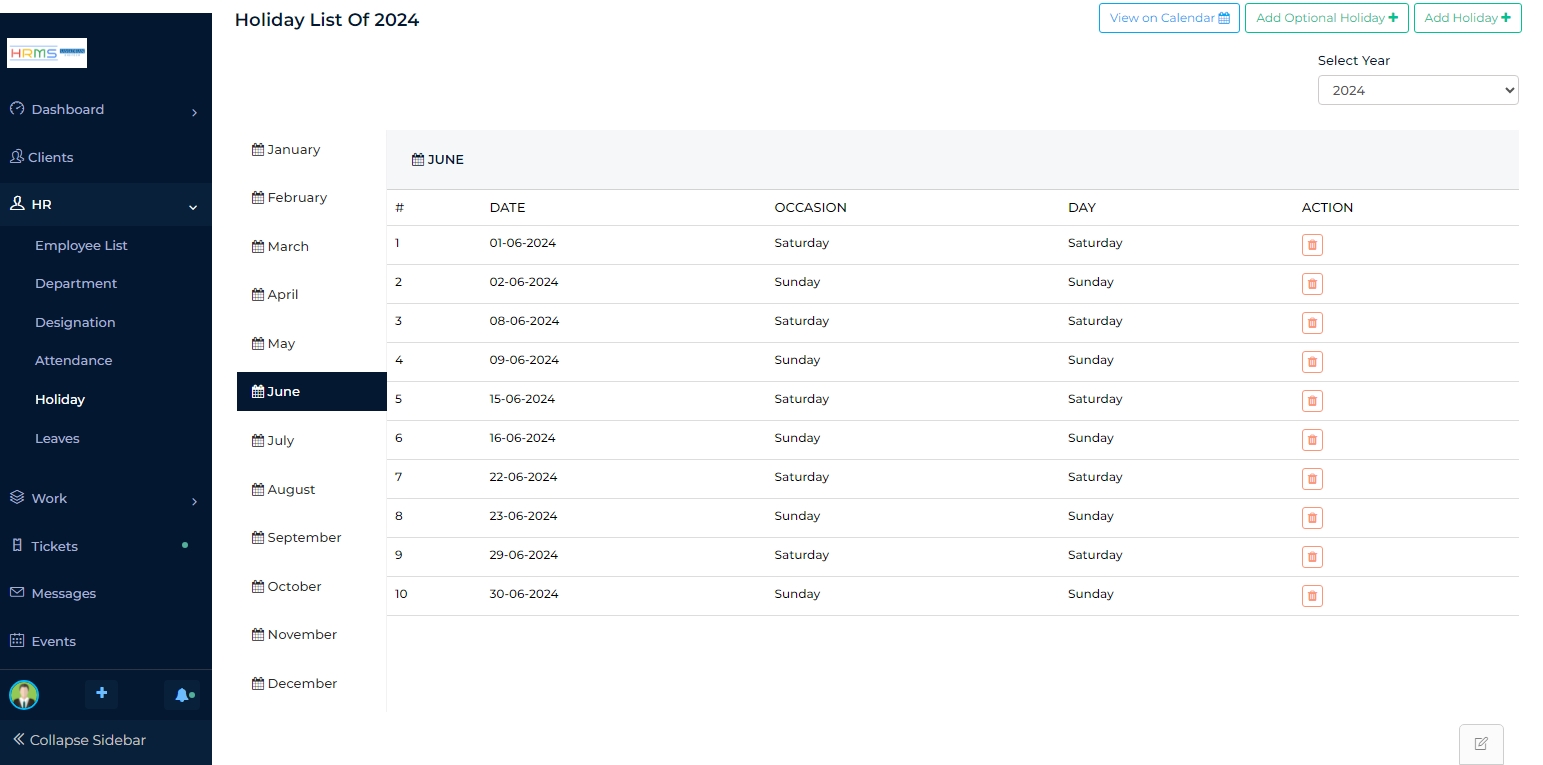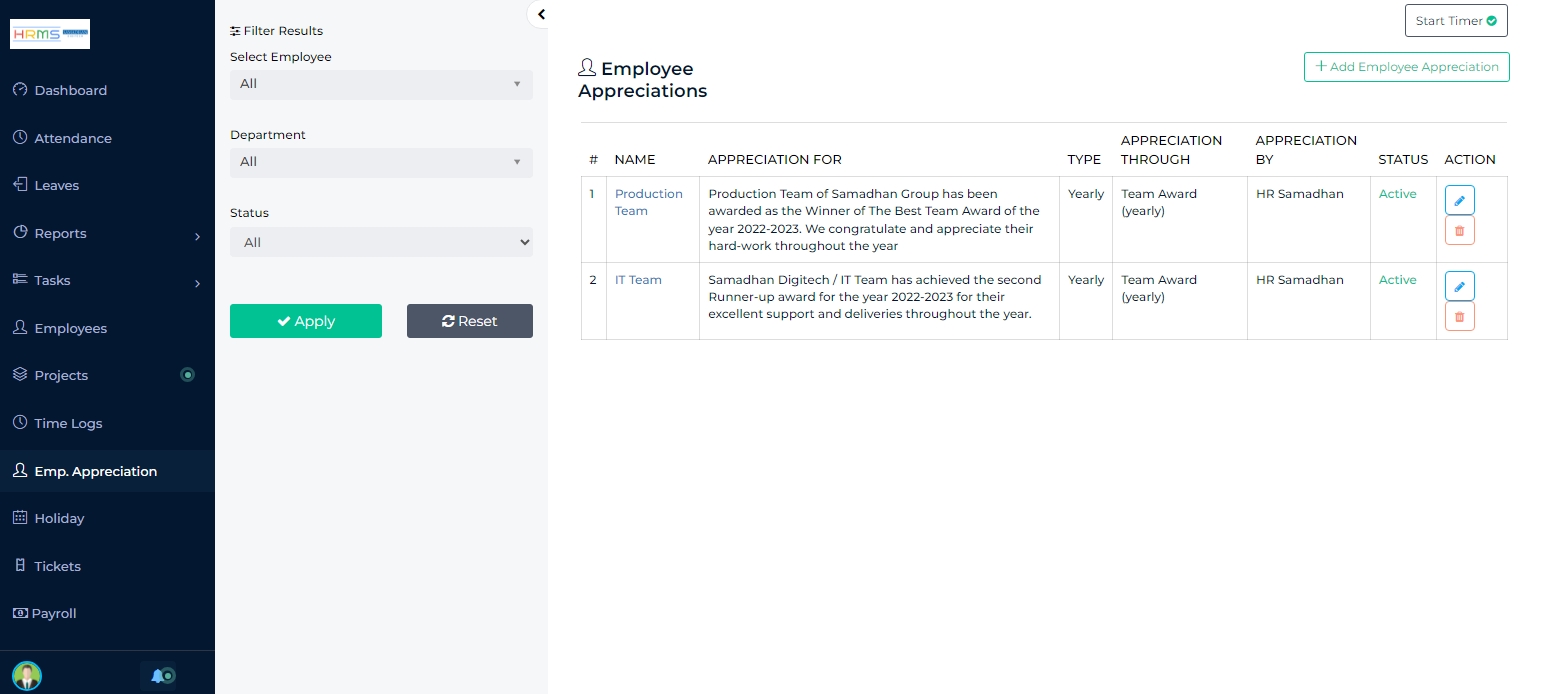
A Human Resource Management System (HRMS) is a comprehensive software application designed to automate and streamline the processes related to managing human resources within an organization. It integrates various HR functions and processes into a unified system, enhancing efficiency, accuracy, and compliance across the HR department.
Components of a Human Resource Management System (HRMS)
Employee Information Management:
HRMS centralizes employee data, including personal information, employment history, skills, qualifications, and performance evaluations. This ensures quick access to accurate employee records for HR professionals and managers.Time and Attendance Management:
Time and Attendance Management: Handles time tracking, attendance recording, and leave management. This department allows employees to request time off, tracks attendance for payroll purposes, and ensures compliance with attendance policies.
Leave Management:
Leave management is a critical function of HRMS designed to facilitate the planning, tracking, and administration of employee absences from work, including vacation days, sick leave, personal leave, and other types of time off. It ensures smooth operations while maintaining compliance with company policies and regulatory requirements.Holiday Management:
Holiday management in HRMS involves the administration and scheduling of designated days off for employees, including public holidays, company-specific holidays, and other recognized observances. It ensures that employees receive appropriate time off while maintaining operational efficiency and compliance with organizational policies and regulations.
Notice Management:
Notice management in HRMS refers to the process of creating, distributing, and managing various types of notices and announcements within an organization. It ensures timely communication of important information to employees, managers, and other stakeholders, fostering transparency and compliance with organizational policies.Reporting Management:
Reporting in HRMS refers to the process of generating and analyzing data to provide meaningful insights into various aspects of workforce management and HR operations. It involves leave, task, attendance and employee data in a format that facilitates decision-making, compliance, and strategic planning within an organization.Employee Appreciation :
Employee appreciation in HRMS refers to the structured process of acknowledging and rewarding employees for their efforts and accomplishments. It aims to enhance employee morale, motivation, and job satisfaction by reinforcing positive behaviors and fostering a culture of recognition within the organization.